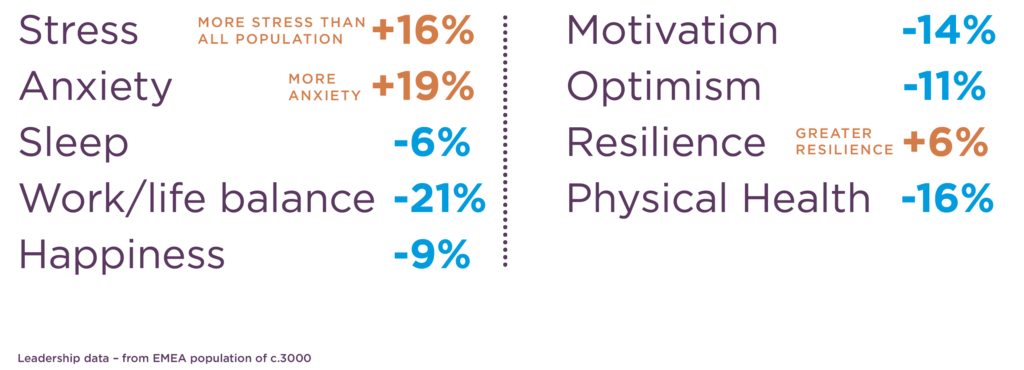We were delighted to sponsor the Wellbeing at Work Middle East Summit this year, particularly as wellbeing is becoming such a focus for the region’s most forward-thinking enterprises. It was encouraging and uplifting to hear so many positive stories from industry leaders about their approaching to the Mental Fitness of their people.
There is still a lot of work to done though. Our survey showed, perhaps unsurprisingly, that the Mental Fitness of employees has suffered quite dramatically over the past year, in large part because of Covid and the challenges it has thrown at all of us.
Certain sectors have suffered more than others – hospitality, retail, telecoms and government sectors in particular. But it is fair to say that no sector has faired particularly well.
Whilst it is great to see an increase in the numbers of employees who feel their organisation is supporting their mental health more effectively than a year ago, there is a marked decrease in Mental Fitness scores (according to Cognomie’s own benchmarking measurements) from an average of 69.4% to 64.7% and that number is still decreasing.

Stress, anxiety, sleep and work/life balance are general areas of concern for most businesses, many feeling that a period of consultancy is needed to examine the almost bewildering number of Mental Fitness services on offer before committing to action. Our view is that companies really need to understand the current state of wellbeing of their people before planning any programme because one thing we know for certain is that each individual’s needs are different and so personalisation is key to success.
However, there is good news amongst the difficulties. We’re seeing a rise in resilience in senior leadership and employees in general, a feeling of confidence that things will get better and, perhaps most encouraging of all, a feeling that relationships have been improving amongst colleagues. This is certainly something to be celebrated and offers us all a lesson that there are always positives to come from the most challenging of situations. I hope we will all be able to build on those positives in the future.
For now though, we would encourage any organisation, large or small, to benchmark the Mental Fitness of their teams and build from there. There is no doubt that building a sustainable mental Fitness strategy will be key to future long-term success.























